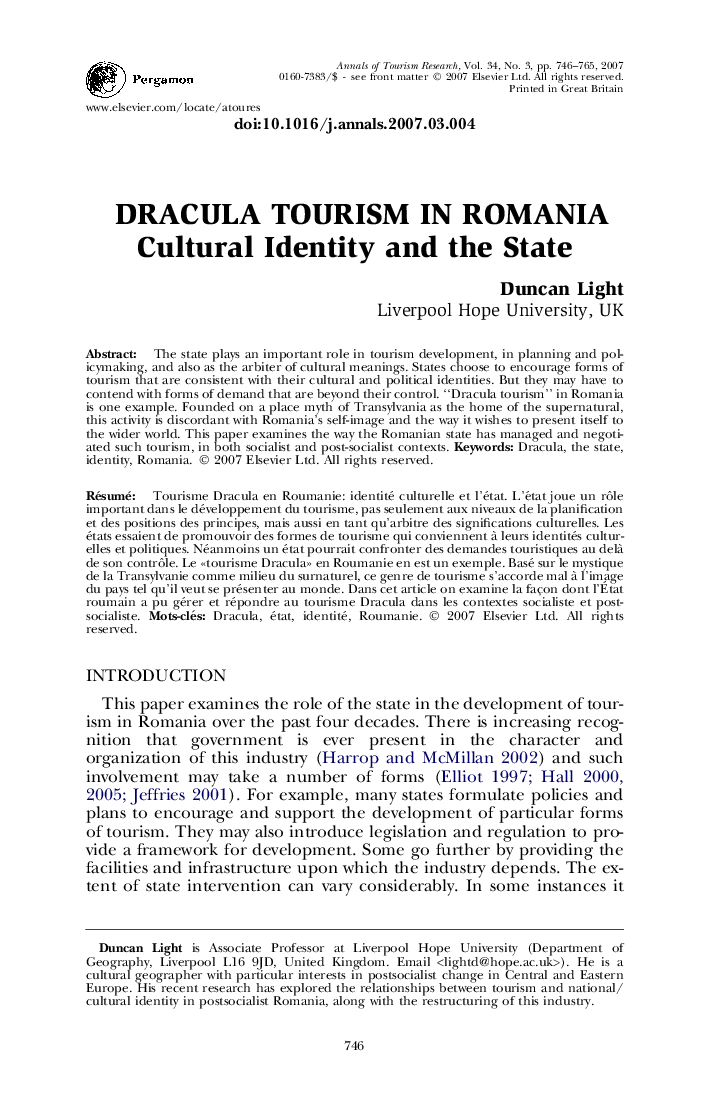| کد مقاله | کد نشریه | سال انتشار | مقاله انگلیسی | نسخه تمام متن |
|---|---|---|---|---|
| 1007601 | 1482278 | 2007 | 20 صفحه PDF | دانلود رایگان |

The state plays an important role in tourism development, in planning and policymaking, and also as the arbiter of cultural meanings. States choose to encourage forms of tourism that are consistent with their cultural and political identities. But they may have to contend with forms of demand that are beyond their control. “Dracula tourism” in Romania is one example. Founded on a place myth of Transylvania as the home of the supernatural, this activity is discordant with Romania’s self-image and the way it wishes to present itself to the wider world. This paper examines the way the Romanian state has managed and negotiated such tourism, in both socialist and post-socialist contexts.
RésuméTourisme Dracula en Roumanie: identité culturelle et l’état. L’état joue un rôle important dans le développement du tourisme, pas seulement aux niveaux de la planification et des positions des principes, mais aussi en tant qu’arbitre des significations culturelles. Les états essaient de promouvoir des formes de tourisme qui conviennent à leurs identités culturelles et politiques. Néanmoins un état pourrait confronter des demandes touristiques au delà de son contrôle. Le «tourisme Dracula» en Roumanie en est un exemple. Basé sur le mystique de la Transylvanie comme milieu du surnaturel, ce genre de tourisme s’accorde mal à l’image du pays tel qu’il veut se présenter au monde. Dans cet article on examine la façon dont l’État roumain a pu gérer et répondre au tourisme Dracula dans les contextes socialiste et post-socialiste.
Journal: Annals of Tourism Research - Volume 34, Issue 3, July 2007, Pages 746–765